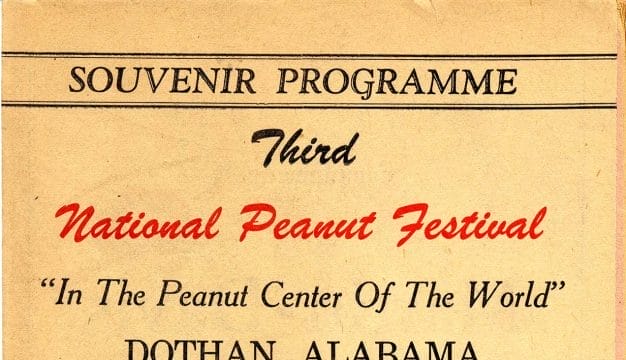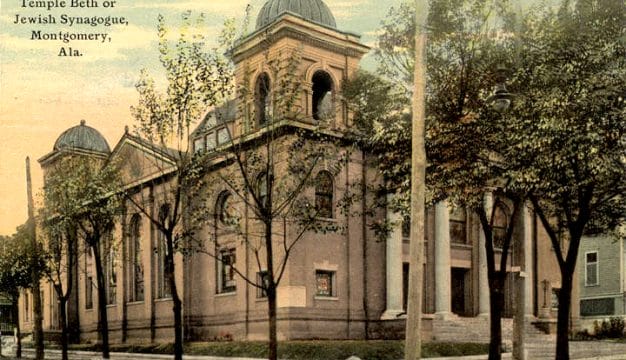Spooner Oldham
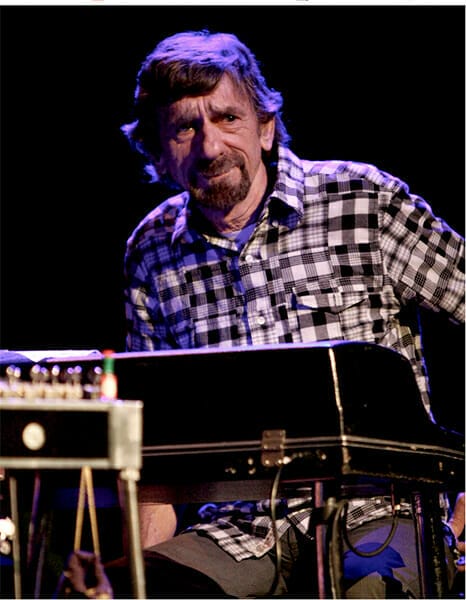 Spooner Oldham
Spooner Oldham (1943- ), a keyboardist and songwriter from Center Star, Lauderdale County, continues to be widely regarded as a founding creative force in the musical legacy of Muscle Shoals. His keyboard work for Florence Alabama Musical Enterprises (FAME) Studios helped give hits like Percy Sledge’s “When a Man Loves a Woman” and Aretha Franklin’s “I Never Loved A Man (the Way I Love You)” their distinctive sound. He is also known for his songwriting collaborations with Dan Penn, which have produced numerous rhythm and blues (R&B) and soul hits for various artists, including Joe Simon (“Let’s Do It Over,” 1965), Solomon Burke (“Take Me Just as I Am,” 1967), and Laura Lee (“Uptight Good Man,” 1967).
Spooner Oldham
Spooner Oldham (1943- ), a keyboardist and songwriter from Center Star, Lauderdale County, continues to be widely regarded as a founding creative force in the musical legacy of Muscle Shoals. His keyboard work for Florence Alabama Musical Enterprises (FAME) Studios helped give hits like Percy Sledge’s “When a Man Loves a Woman” and Aretha Franklin’s “I Never Loved A Man (the Way I Love You)” their distinctive sound. He is also known for his songwriting collaborations with Dan Penn, which have produced numerous rhythm and blues (R&B) and soul hits for various artists, including Joe Simon (“Let’s Do It Over,” 1965), Solomon Burke (“Take Me Just as I Am,” 1967), and Laura Lee (“Uptight Good Man,” 1967).
Dewey Lindon “Spooner” Oldham was born June 14, 1943, in Center Star near Florence. His was a musical family: his father, Dewey Lindon Oldham Sr., formed a string band with his brothers and created an original southern gospel style. Oldham Sr.’s band recorded a record at WJOI in Florence and auditioned for the Grand Old Opry in the early 1940s, and might have turned professional were it not for his father’s World War II-related disability. Spooner was given a piano as a youth and his mother Marie, a hair stylist, and his two sisters, Judy and Donna, also sang; Donna had a brief stint in a rock band. He acquired his nickname literally by accident. As a boy he reached for a pan on the stove, and a spoon injured his right eye, which remains sightless.
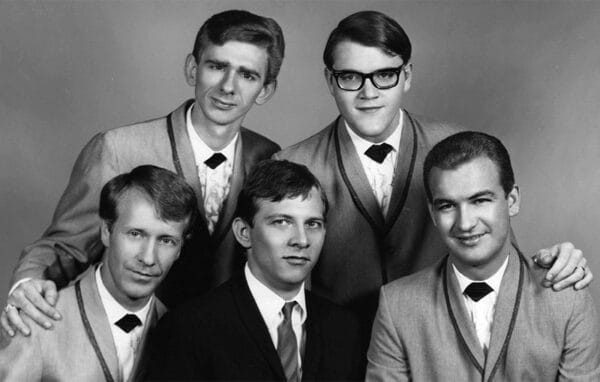 Dan Penn and the Pallbearers
Early in his career, Oldham occasionally played the keyboard in Dan Penn’s groups Mark V and The Pallbearers and with Hollis Dixon and the Keynotes. He then played in the house band for FAME in Muscle Shoals on a number of early hit records produced there, including Arthur Alexander’s “You Better Move On” (1962) and Jimmy Hughes’s “Steal Away.” The latter song was released as FAME Records’ first single and reached No. 17 on the pop and R&B charts in 1964. The following year, Spooner married Karen; the couple would have two daughters.
Dan Penn and the Pallbearers
Early in his career, Oldham occasionally played the keyboard in Dan Penn’s groups Mark V and The Pallbearers and with Hollis Dixon and the Keynotes. He then played in the house band for FAME in Muscle Shoals on a number of early hit records produced there, including Arthur Alexander’s “You Better Move On” (1962) and Jimmy Hughes’s “Steal Away.” The latter song was released as FAME Records’ first single and reached No. 17 on the pop and R&B charts in 1964. The following year, Spooner married Karen; the couple would have two daughters.
Oldham continued to play keyboard on hits that catapulted the Muscle Shoals music scene into the limelight. His work on Percy Sledge’s “When a Man Loves a Woman” showcases the reverential gospel side of Oldham’s style, whereas his electric piano work on Aretha Franklin’s only Muscle Shoals hit (recorded in January 1967) “I Never Loved a Man (the Way I Love You)” reveals a penchant for funky blues. Oldham’s organ track on Wilson Pickett’s No. 6 R&B hit “Mustang Sally” (1966) provides a reedy, winnowing call and response to Pickett’s assertive baritone vocal exhortations, exemplifying Oldham’s ability to devise a form of accompaniment that fit the songs’ approach.
Oldham also played on Pickett’s “Funky Broadway,” which became a No. 1 R&B hit in spring 1967. In addition to playing on Aretha Franklin’s Muscle Shoals sessions, he recorded with her at Atlantic Records in New York through 1968. He played on Franklin’s first four albums on Atlantic, which yielded some of her most definitive material: “Respect,” “Chain of Fools,” “Baby, I Love You,” and “Think.” In addition, he contributed keyboard tracks on a number of Muscle Shoals-based soul hits, including Etta James’ “Tell Mama” (1967), Percy Sledge’s “Take Time to Know Her” (1968), and Clarence Carter‘s “Slip Away” (1968).
Oldham was also active as a studio musician and songwriter in Memphis in the late 1960s, where he played on sessions for King Curtis, B. J. Thomas, the Box Tops, and the Sweet Inspirations. After the assassination of Martin Luther King Jr., Oldham left Memphis and moved to Los Angeles. The killing stifled the openness of integrated music-making in soul and R&B, particularly in southern regional recording. But the soul and southern music that Spooner had helped to create was absorbed into the Los Angeles country-rock scene thanks to the efforts of Gram Parsons and the Flying Burrito Brothers and The Byrds.
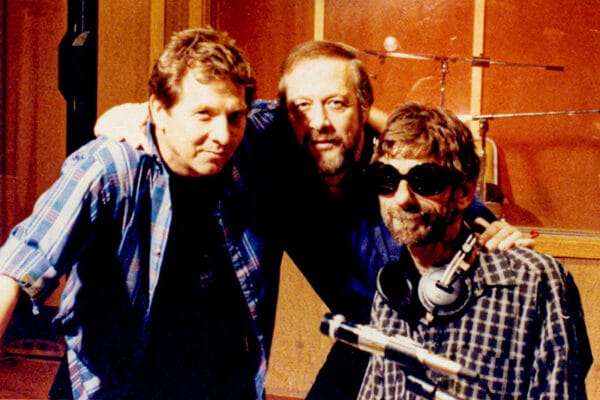 Dan Penn, David Briggs, and Spooner Oldham
During the tumultuous summer of 1968, Oldham recorded his own “It’s Love” for Atlantic Records and appeared on recordings with Barbara Lynn. He and Dan Penn contributed “Cry Like a Baby” to The Box Tops’ album of the same title. The song spent 12 weeks at No. 2 in the Hot 100 that summer. Oldham’s transition to the Los Angeles scene included Janis Joplin’s recording of Dan Penn and Oldham’s “A Woman Left Lonely” for the album Pearl (1971). Oldham released a solo album titled Pot Luck in 1972, but it failed to chart. Oldham’s “Lonely Women Make Good Lovers” was also recorded that year by Bob Luman and later became a No. 4 hit in 1984 for Steve Wariner. In 1973, Oldham recorded with Linda Ronstadt on her album Don’t Cry Now and performed on Gene Clark’s country-rock album No Other (1974). He then joined Neil Young’s entourage, recording on Young’s Comes a Time (1978) and Harvest Moon (1992). Back in Muscle Shoals, Oldham played on Bob Dylan’s evangelical album Saved (1980).
Dan Penn, David Briggs, and Spooner Oldham
During the tumultuous summer of 1968, Oldham recorded his own “It’s Love” for Atlantic Records and appeared on recordings with Barbara Lynn. He and Dan Penn contributed “Cry Like a Baby” to The Box Tops’ album of the same title. The song spent 12 weeks at No. 2 in the Hot 100 that summer. Oldham’s transition to the Los Angeles scene included Janis Joplin’s recording of Dan Penn and Oldham’s “A Woman Left Lonely” for the album Pearl (1971). Oldham released a solo album titled Pot Luck in 1972, but it failed to chart. Oldham’s “Lonely Women Make Good Lovers” was also recorded that year by Bob Luman and later became a No. 4 hit in 1984 for Steve Wariner. In 1973, Oldham recorded with Linda Ronstadt on her album Don’t Cry Now and performed on Gene Clark’s country-rock album No Other (1974). He then joined Neil Young’s entourage, recording on Young’s Comes a Time (1978) and Harvest Moon (1992). Back in Muscle Shoals, Oldham played on Bob Dylan’s evangelical album Saved (1980).
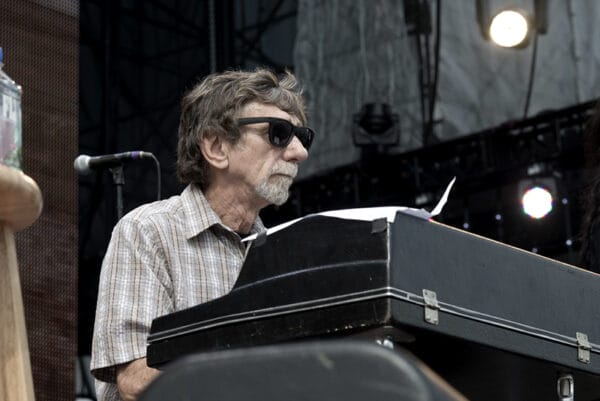 Spooner Oldham at Farm Aid
During the 1980s, Oldham relocated to Nashville and toured with both Bob Dylan and Neil Young, working with a host of significant artists, including J. J. Cale, Delaney Bramlett, Jackson Browne, and Roger McGuinn. He co-wrote “Me, Myself, and I” with John Prine for Prine’s Aimless Love album (1984). Oldham and Penn teamed up again in 1991 at New York’s Bottom Line, reacquainting audiences with their songwriting and musicianship. In 1993, they performed with Arthur Alexander for his final recording Lonely Just Like Me (1993), a paean of appreciation for Alexander’s songwriting. The following year, Penn released a solo album, Do Right Man, which features songs from Penn and Oldham’s Muscle Shoals heyday, including two Oldham and Penn compositions: “It Tears Me Up,” a hit for Percy Sledge in 1966, and “I’m Your Puppet,” recorded by James and Bobby Purify (1966).
Spooner Oldham at Farm Aid
During the 1980s, Oldham relocated to Nashville and toured with both Bob Dylan and Neil Young, working with a host of significant artists, including J. J. Cale, Delaney Bramlett, Jackson Browne, and Roger McGuinn. He co-wrote “Me, Myself, and I” with John Prine for Prine’s Aimless Love album (1984). Oldham and Penn teamed up again in 1991 at New York’s Bottom Line, reacquainting audiences with their songwriting and musicianship. In 1993, they performed with Arthur Alexander for his final recording Lonely Just Like Me (1993), a paean of appreciation for Alexander’s songwriting. The following year, Penn released a solo album, Do Right Man, which features songs from Penn and Oldham’s Muscle Shoals heyday, including two Oldham and Penn compositions: “It Tears Me Up,” a hit for Percy Sledge in 1966, and “I’m Your Puppet,” recorded by James and Bobby Purify (1966).
Oldham returned to Alabama in the 1990s to live in Rogersville, Lauderdale County. In 1998, he and Penn released a duet performance titled Moments From This Theatre (1998), recorded live in Dublin, Ireland. Oldham appeared in Neil Young’s 2006 concert film Heart of Gold, and he backed up Crosby, Stills, Nash, and Young for their 2006 “Freedom of Speech” tour. He also toured with the Drive-By Truckers and played on Bettye Levette’s album The Scene of the Crime. Spooner Oldham was inducted into the Musicians Hall of Fame in Nashville (2008) and the Rock and Roll Hall of Fame in Cleveland, Ohio (2009). In 2013, Oldham was among many artists who appeared in the documentary Muscle Shoals on the history of the music scene in the city. In 2014, he was inducted into the Alabama Music Hall of Fame.
Additional Resources
Doggett, Peter. Are You Ready For The Country: Elvis, Dylan, Parsons and the Roots of Country Rock. New York: Penguin Books, 2000.
Gordon, Robert. It Came From Memphis. New York: Simon and Schuster, 1995.
Guralnick, Peter. Sweet Soul Music: Rhythm and Blues and the Southern Dream of Freedom. Boston: Back Bay Books, 1999.
Marcus, Griel. The Old, Weird America: The World of Bob Dylan’s Basement Tapes. New York: Picador, 2001.

